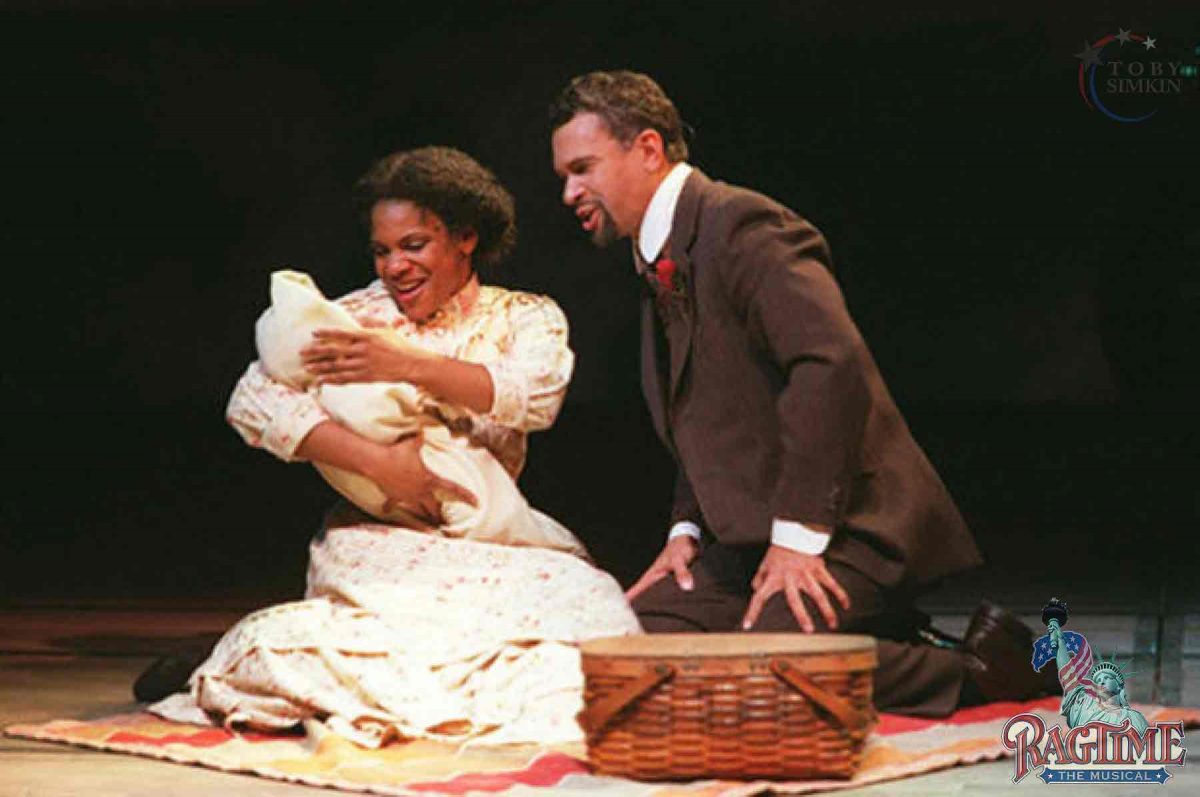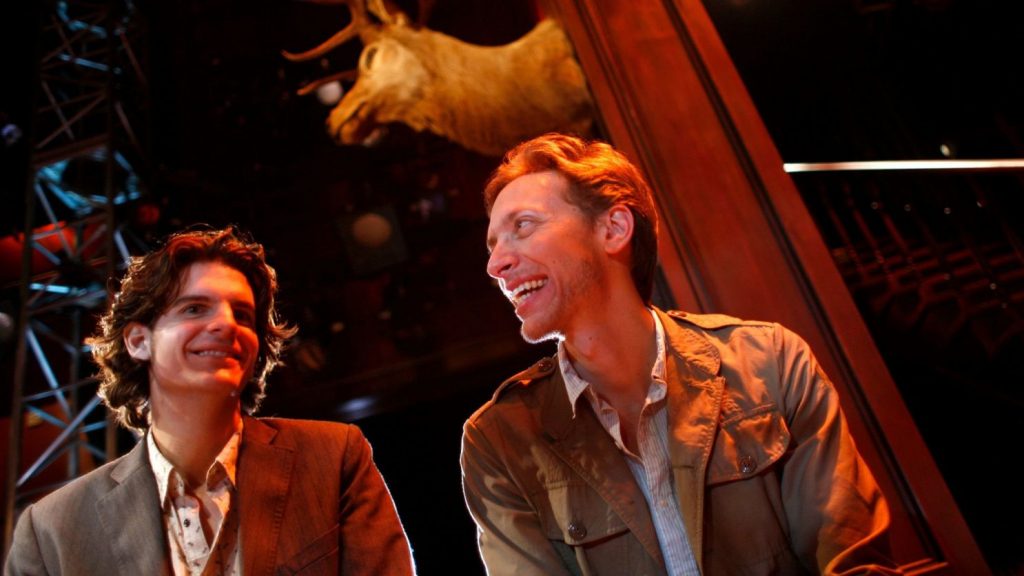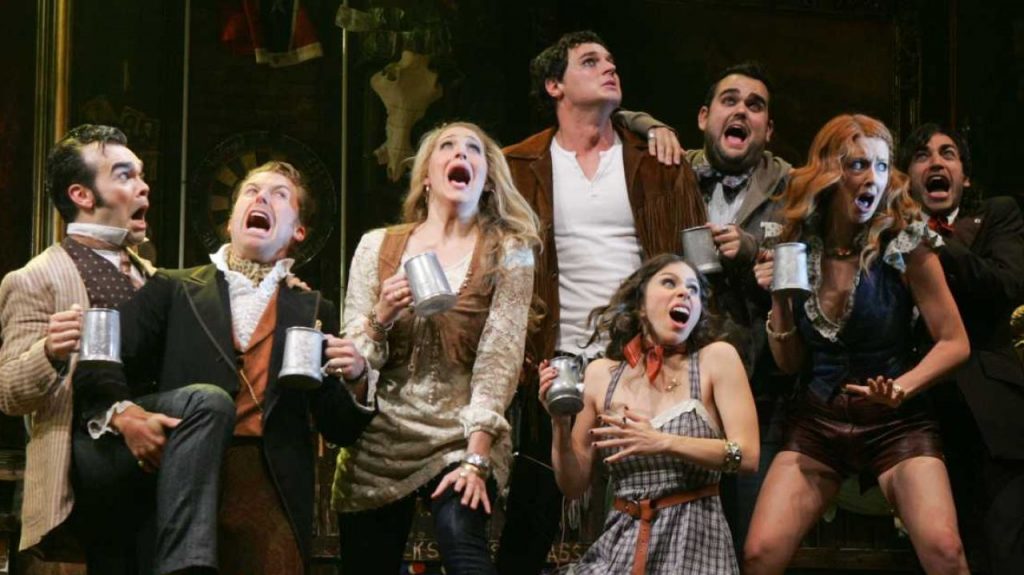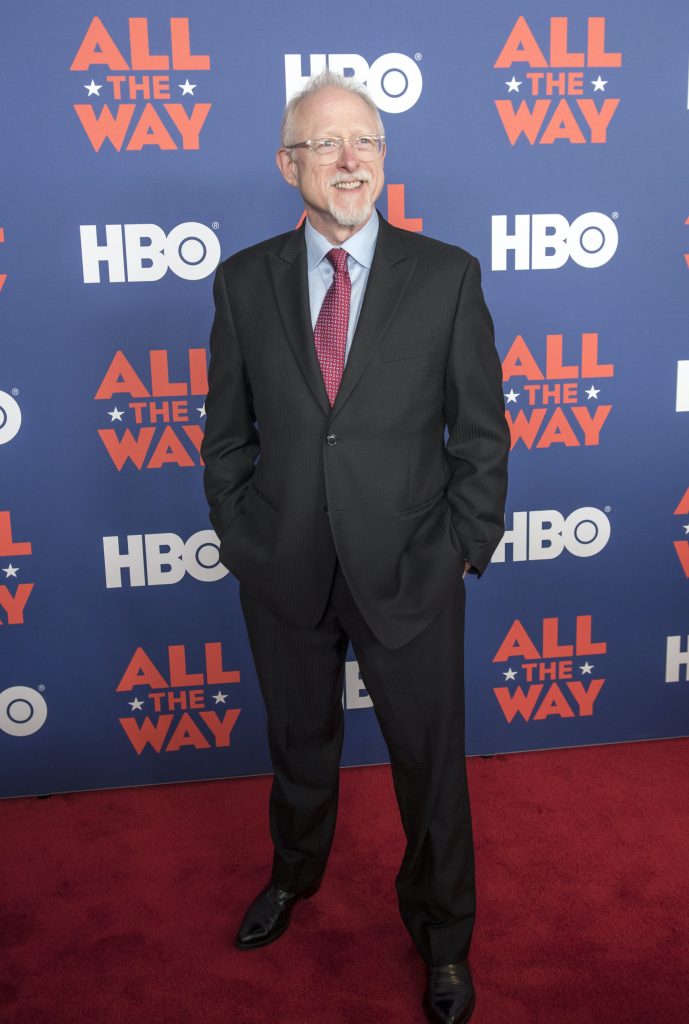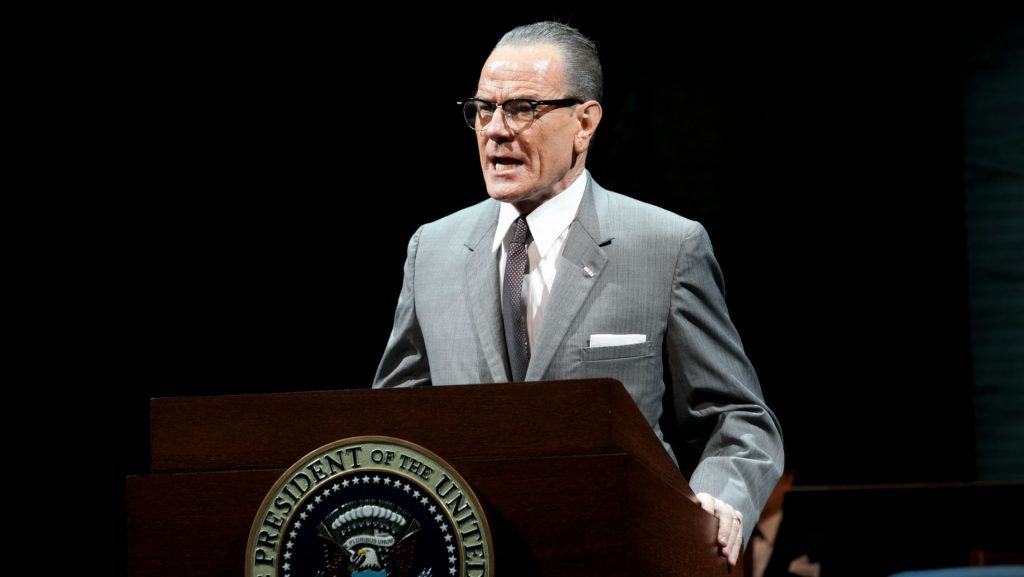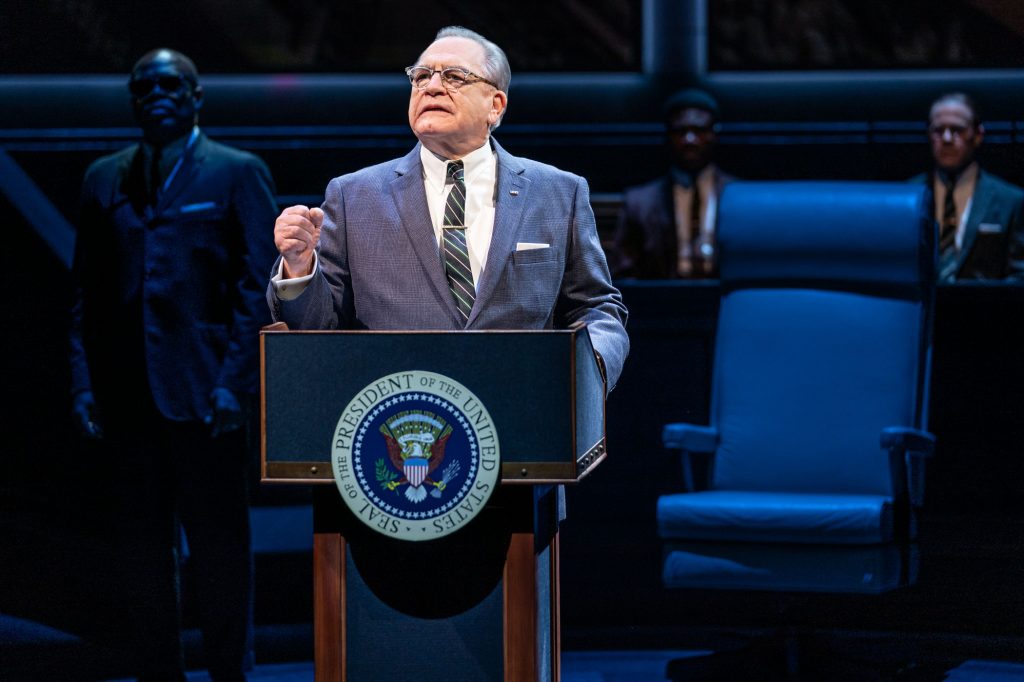by Katie Devin Orenstein
Celebrate the 4th of July weekend with Broadway’s Best Shows as we run through some of the top patriotic musicals in the can(n)on (get it?).
1776 is a musicalization of the 4th of July holiday’s origin story, as founding father John Adams suffers through a sweltering Philadelphia summer to try to get the Declaration of Independence completed and signed by the Continental Congress. The show highlights just how hard it was to make democracy happen – and the contradictions within, including the simmering fight between Northern and Southern states over slavery, in the song “Molasses to Rum.” While all the signees of the Declaration were men, 1776 makes sure to include Abigail Adams’ influence on the proceedings.
Ragtime tells an epic story about the American Dream at the turn of the 20th century, interweaving the lives of Black Americans, Eastern European Jewish immigrants, and the wealthy white people at the top of New York society. Ragtime is a moving story about America’s flaws and its immense potential.
Working, with a rousing opening number that takes its lyrics from Walt Whitman’s poem “I Hear America Singing,” is a love letter to everyday Americans, and the American melting pot. Its songs are from a variety of writers, including Stephen Schwartz, Mary Rodgers, and Lin-Manuel Miranda. The song “Steelworker” is actually by folk music legend James Taylor, in his Broadway songwriting debut:
Of Thee I Sing is a gentle satire of that which we celebrate on the 4th of July, American democracy. The first musical to win a Pulitzer Prize, way back in 1932, the show features songs by the Gershwin brothers, including “Who Cares?”, and a book by George S. Kaufman. The plot concerns a presidential campaign, and a candidate who suddenly starts to go up in the polls when he switches his platform to “LOVE”, proposing to his lady love at every campaign stop, instead of a stump speech!
Bloody Bloody Andrew Jackson is a musical about early American politicians, using a contemporary music genre (in this case, punk and emo rock) – and it was on Broadway five years before Hamilton! With music and lyrics by OBIE winner Michael Friedman, the show chronicles controversial populist president Andrew Jackson’s rise and fall in the 1830s and 40s. With catchy tunes and a bit of onstage gore, BBAJ captures the essence of an angry, formative moment in American history:
Of course, no list of 4th of July-themed musicals would be complete without Hamilton. Here’s Leslie Odom, Jr., star of the upcoming play Purlie Victorious on Broadway, performing “Wait For It”
